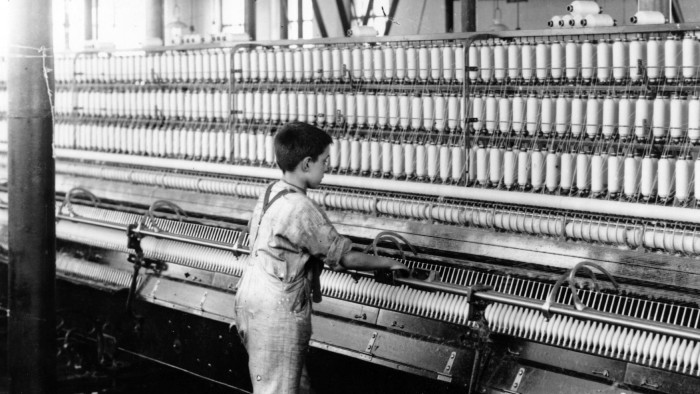Brexit free-trade illusions from the 19th century


Roula Khalaf, Editor of the FT, selects her favourite stories in this weekly newsletter.
Vying with Big Ben’s bongs for the most pointless story of the past few days came a new contribution to the Brexit debate on trade.
The Institute of Economic Affairs, a soi-disant free-market policy institution that provided much of the intellectual ballast for Thatcherism, produced a report that caused bafflement across the world of trade economists and policymakers. The bewilderment only mounted after an intervention from Patrick Minford, a Brexit-supporting economist who specialises in monetary and macroeconomics, not trade.
They both argued that a post-Brexit trade deal was unnecessary as the UK could simply unilaterally cut its tariffs and trade merrily with all-comers. Leaving aside the political impracticality of this — much of British farming would be swept away by a flood of cheap imports — and the manifold errors in the works of the IEA and Professor Minford, these ideas have some merit. Unfortunately, they mainly have merit in the 19th century, when tariffs were the main friction in international commerce and trade was dominated by basic commodities.
Looming over these and similar arguments is David Ricardo, the great economist who, two centuries ago this year, produced his magisterial argument in favour of trade liberalisation according to the theory of comparative advantage. Ricardo showed that, even if Portugal could produce wine and cloth more cheaply than England, it would still benefit both countries to trade and for England to specialise in the product (cloth) at which it was least bad.
The theory is fine as far as it goes, which is to say a wonderland, or two wonderlands, of competitive markets where technology is fixed and it is quick and cheap to move capital and labour from one sector to another. In the real world where the goods sold across borders become ever more sophisticated — and where services take a growing share of world trade — regulations are generally more important than tariffs. England could have closed its wineries and focused entirely on cloth but, if it failed to meet Portuguese or other foreign standards for its sole product, comparative advantage would not operate.
It is true, for example, that the EU has heavily protected its farmers with tariffs. But as the British public now wearily knows, regulations banning chicken dipped in chlorinated water are a more effective barrier to imports from, for example, the US. On the export side, the UK could close down manufacturing and encourage everyone to get jobs in some industry in which Britain could have a comparative advantage, like finance or management consulting. But even allowing for the absurdity of the idea that labour is that fungible, if British consultants’ qualifications are not recognised abroad, the logic of the theory fails to work.
It’s an unpleasant thing for a free-trader to accept, but these days, to trade is to regulate — or, for most countries, to accept regulation. When the UK is exporting to behemoths like the EU and the US, it will need either a bureaucratic process to show it is meeting the rules of the destination economy or to sign a deal trying to get its own standards recognised instead.
The idea of pursuing unilateral free trade is not absurd. As it happens, it has delivered some of the biggest advances in liberalisation in emerging markets over the past few decades. But pushing it as a reason for the UK to eschew future trade deals after Brexit in an increasingly sophisticated and regulated economy shows a serious dislocation from reality.
alan.beattie@ft.com
Comments